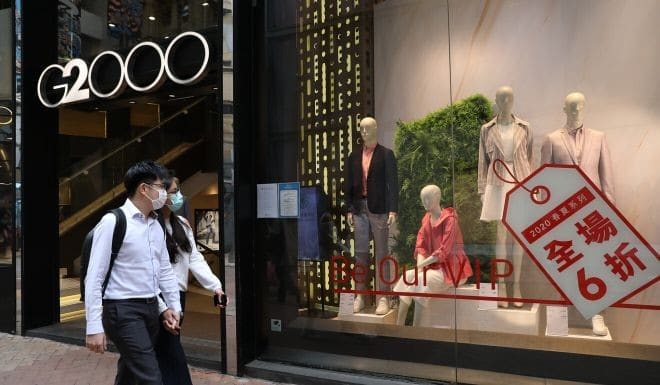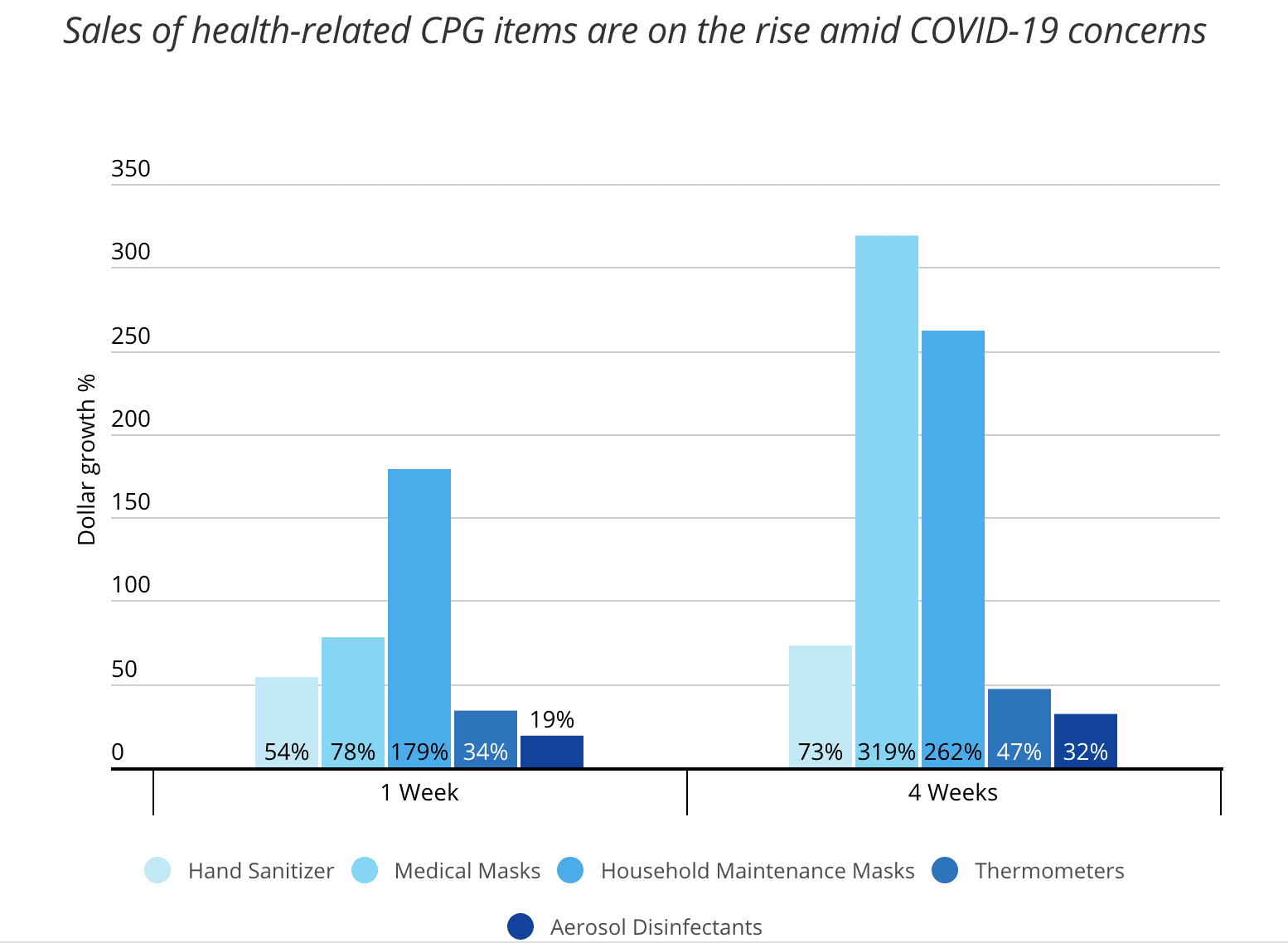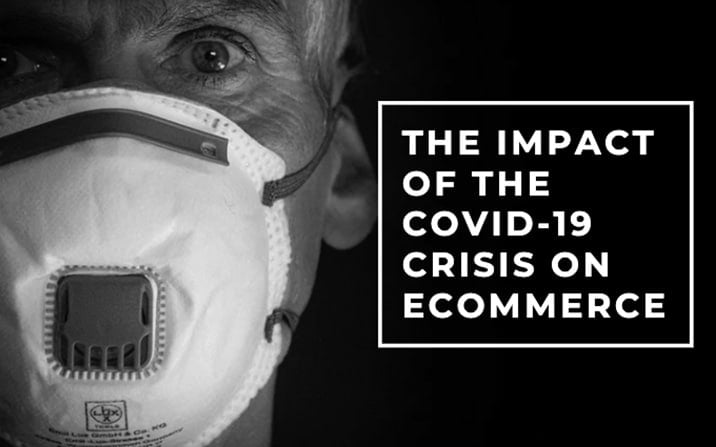The Impact of the COVID-19 pandemic are shaping the year 2020.
As businesses are closing due to lockdowns; and social distancing is in practice as a way to slow pandemic’s spread, brands have to adapt and be flexible so they can survive the onslaught of challenges.
This naturally led to a drop-off in brick-and-mortar shopping. Online shops, however, continue to operate, and digital purchasing power has increased by 20%.
To help businesses navigate better in these trying times, we’ve gathered some statistics and data about how the COVID-19 crisis is affecting the eCommerce landscape.
The Fashion Industry Takes a Blow
Understandably people are avoiding physical stores for fear of getting infected with the virus.
As a consequence, department stores, large chains, and DTC brands alike are all experiencing heavy losses, prompting them to close their physical stores.

To cope with the calamity, established brands have opted to offer massive discounts, while some chose a more creative approach:
- Known brands such as Gap, Adidas, and Aeropostale, among others, are giving discounts of 30-60% on various products.
- Shoe companies such as Clarks and Liberty Shoes are offering up to 70% discounts on multiple products as well.
- The wedding site, The Knot and WeddingWire, has adopted a unique method of surviving by running a virtual concierge-like approach.
They’ve been rolling out editorial features to help couples continue to plan for their nuptials even at this time, while home-bound.
- LVMH (the parent company of Louis Vuitton, Dior, Givenchy, and Marc Jacobs), directed their perfume and make-up facilities to produce a hydroalcoholic gel, used in hand sanitizers, for donation to fight the contagion.
The calamity that the fashion industry is facing has reached such nauseous heights, that Vogue Business expects a potential loss of as high as $10 billion for the industry this year due to COVID-19.
The Struggles of Online Retail Stores for Wedding Dresses
The wedding landscape and its overlapping industries are also reeling in pain.
Azazie.com, an online retail store for bridesmaid and wedding dresses, has seen a lot of shipping and production delays on their wedding and bridesmaid dresses as a result of several factories in China closing due to the COVID-19.
To give their customers proper guidance, the online retail store advised its customers to place their orders four months prior to their event date, they also highlighted that they’re unable to take in rush orders.
Azazie also kept their customer service team running, albeit home-based, just to offer support to their customers.
Considering how 80% of the world’s wedding dress supply comes from China, we are given a perspective of how adversely impacted the wedding industry is.
The fact that over 50 per cent of Americans are postponing their weddings due to lockdowns isn’t helping either.
How the Photography Industry is Impacted
It’s worth pointing out that the impact of cancelled weddings is far-reaching.
Because weddings are cancelled, those in the photography business are severely crippled.
Since there are no wedding events to cover, a significant portion of their client base has been snuffed out.
As photographers are robbed of the opportunity to close wedding-related contracts, the people working with them such as photo retouchers and editors also stagger in pain.
cancelled events are not the only things that are taking business away from photographers, either.
Decreasing demands for product and brand photo-shoots from eCommerce stores suffering from the impact of COVID-19, for instance, are also having a domino effect on the photography and photo retouching/editing industry.
With photographers hardly closing any contracts, their need for photo editing and retouching services are also plummeting.
Not every eCommerce niche is suffering the same fate, though, since businesses in the health-related product industry and those that offer online products considered as basic needs are thriving.
In fact, there is a significant rise in 10,000 people in each country who participated in an online survey turning to eCommerce to purchase products they would normally buy in-store.
As of March 14, 2020, the results showed a 50% increase in China, 55% in India, 57% in Vietnam, and 31% in Italy.
There is also more demand for specific products that people buy online, including food items with long shelf life like canned soup with a +397% increase in sales, weight training equipment with +307%, and cough and cold products with +535%.
Leveraging the shift in consumer interest and purchasing behaviours can be a way for photographers, and in turn, photo editors and retouchers to also switch the focus of their services.
It’s an opportunity for them to find projects with other eCommerce shops that continue to operate and even flourish during the COVID-19 crisis — and keep business running.
Health-related Ecommerce Products
Ecommerce websites that are selling health products are seeing better numbers due to the pandemic.

Source: bigcommerce.com
According to Adobe’s report, the online purchases made on certain product categories have seen massive increases due to the COVID-19 disaster:
- 807% increase in virus protection products such as hand sanitizer, gloves, and masks, etc.
- 87% increase in the purchase of pantry non-perishables like dried beans and fruit snacks.
- Fitness equipment such as dumbbells, kettlebells, and treadmills (among other equipment) had a 55% increase in sales from March 11 – 15 when compared to March 1 – 10 baseline.
These increases are triggered due to the people’s growing concern over the COVID-19.
What Are Massive Ecommerce Companies Doing?
Amidst the devastating crisis, eCommerce giants such as Amazon, JD.com, and eBay also have their stories to tell:
- To deal with the increased workload and to mitigate the risk brought by the pandemic, Amazon, at one point, stopped accepting shipments of nonessential items to its warehouses. They focused on medical supplies and other high-demand products.
The company is also increasing its capacity for grocery delivery from Amazon Fresh and Whole Foods market to help their customers with their food supplies.
- JD.com, China’s largest online retailer, has seen sales for everyday household staples quadruple over the same period last year.
The China-based eCommerce giant has made great strides to combat the COVID-19 crisis: from delivering tons of epidemic prevention materials, to fighting the virus through their smart technologies.
- eBay’s initiative is to allow new businesses to run an eBay store for free for three months with no selling fees. Also, in their attempt to help their buyers, eBay is zeroing-in on those profiteering off the COVID-19 crisis, removing or blocking their listings from the platform.
Even if the efforts are scaled-down, small- to medium-sized eCommerce companies can follow the business strategies and humanitarian approach that leading eCommerce companies are doing.
What’s next?
Based on the information and data circulating in most industries, eCommerce companies are expected to offer massive discounts all throughout the year 2020.
The problem has reached such a severe case that even the most established brands are driven to a corner.
To help our customers manage their expenses and generate more profit during these trying times, we’ve opted to offer a 50% discount on all our services.


